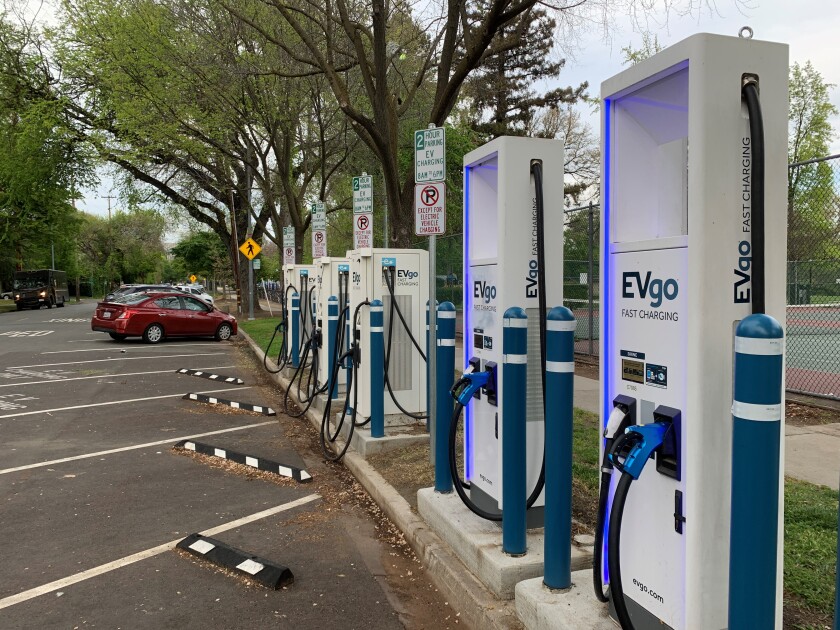By far the most expensive item on the Nov. 8 ballot is Measure L, a $650 million general obligation bond measure that would help allocate and raise money for housing, infrastructure and climate projects, such as road repaving, affordable housing construction and “undergrounding” utility lines.
If at least 66 percent of voters mark “yes” on their ballots — which will begin arriving in mailboxes Oct. 10 — the bond would be the largest revenue stream in the city’s history.
Supporters argue that Measure L would advance development goals while minimizing property tax increases, due to a proposed 48-year repayment timeline. But opponents are concerned voters will be overwhelmed by the costs for decades to come, especially at a time when inflation is effectively shrinking many residents’ paychecks.
Over the life of the bond, the median increase to homeowners’ property taxes would be $40.91 for every $100,000 of a home’s assessed value, according to city documents.
The largest chunk of the bond — $300 million — would go toward planned improvements to streets, sidewalks and traffic safety. Of that funding, more than 75 percent would be dedicated to paving and reconstruction of the dozens of city streets that have buckles, cracks and potholes.
Affordable housing initiatives would be allocated $200 million, which will help construct and acquire up to 2,000 housing units when combined with additional state and federal funding.
The remaining $150 million would go toward efforts like “undergrounding” utilities on evacuation routes to reduce wildfire risks, constructing bike and pedestrian facilities and improving the city’s waterfronts, open spaces and parks.
According to an impartial analysis by City Attorney Farimah Faiz Brown, the tax is projected to raise around $25 million annually and the total cost of repayment, including interest, is more than $1.1 billion.
Mayor Jesse Arreguín said he thinks the bond will allow city leaders to have enough money to improve and fix Berkeley into “the world-class city it should be.”
“This is an urbanist measure to bring our aging infrastructure into the 21st century,” Arreguín said in statement after the Berkeley City Council finalized the proposal last month. “Berkeley residents have consistently ranked housing, climate resiliency, and infrastructure as major priorities. We’re listening, and this bond is the City Council’s response.”
The measure would impact longtime homeowners and newer buyers in dramatically different ways.
For example, if a home’s value is assessed at $650,000 — a rate commonly used for industry projections — the tax would tack on an additional $265 annually. This would typically be the scenario for long-term homeowners, many of whom benefit from lower assessed home values thanks to California’s Proposition 13.
But residents who more recently purchased a home in Berkeley, where the median sale price hovers around $1.6 million, will face an increase closer to $650 each year.
Opponents also object to the 48-year payback window: several of the planned priorities, such as the street repairs, will begin to decay and lose value before the bill is paid back.
Jim McGrath, a civil engineer and former Parks and Waterfront commissioner who resigned in December, said a lack of long-term planning and a history of murky financial accountability pushed him to start a campaign against Measure L.
“If you look at the streets, the first-graders that are in Berkeley schools this year will be AARP members before the bonds are paid off, but the streets will be worn out when they’re in high school,” McGrath said. “It makes sense to take out a loan to replace your roof because it’s going to last 30 years, but it doesn’t make sense to take out a loan to buy groceries.”
Voters will also be asked if they support a tax on homes that sit vacant for more than 182 days in a year.
Measure M proposes taxing property owners between $3,000 and $6,000 for any empty condominiums, duplexes, single-family homes and townhouses. If those spaces remain vacant for a second subsequent year, that penalty would double.
Exemptions would be carved out for housing units controlled by nonprofits, local government agencies, small property owners who live on-site, or families that do not own more than one single-family house and a single accessory dwelling unit.
About 700 units would be subject to the tax in its first year – beginning in January 2024 – while upward of 1,000 units would be hit within two years.
City officials estimate the tax could bring in between $3.9 million and $5.9 million annually, citing neighboring Oakland, which reaped more than $7 million in revenue the first year after a similar vacancy tax passed by 70 percent in 2018.
Councilmember Kate Harrison, who proposed the tax, said it would be one more creative way the city can support efforts to increase local housing stock.
“There’s an unforgivable number of units that lie vacant, many of them empty for years,” Harrison said. “Building housing takes time. Here, we can bring these units back online in a more rapid fashion than that.”
If this 2022 proposal passes, another vote would be needed to extend the tax beyond 2035.
Finally, Measure N will ask voters to allow Berkeley officials to “develop, construct or acquire” up to 3,000 low-income housing units. While the measure would not approve or dedicate city funding to any specific housing projects, this voter-led process is required by state law.
In 2016, 83 percent of voters approved a similar question — Measure Z1 — to greenlight adding an additional 500 units of low-rent housing to the city’s stock.
©2022 MediaNews Group, Inc. Distributed by Tribune Content Agency, LLC.
Related Articles










